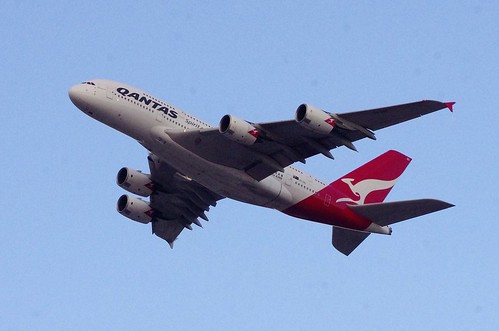How To Buy Qantas Shares
Qantas #Qantas

Qantas shares are trading at $5.57 each as of September 8 2023, giving the company a market value of $9.6 billion. The stock is down nearly 13% in the last month alone, but is still one of the best performers in its sector and on the ASX over the last two years.
Qantas was one of the biggest casualties of the Covid-19 pandemic, when global travel restrictions forced the company to suddenly shut down services, resulting in its shares sliding from an all-time high of $7.40 on December 19 2019 to a pandemic low of $2.36 on March 20, 2020. But its market value has more than doubled since on the back of a rebound in travel demand.
Qantas shares touched an all-time low of 96.5 cents in December 2013 with the airline issuing a profit warning and losing its investment-grade credit rating at the time.
Are Qantas Shares Dropping?
While Qantas shares have rallied since the pandemic, the recent controversies have certainly weighed on the stock, which is down nearly 13% in the last month to their lowest level since October 2022. Part of this can be attributed to the overall weak sentiment across the Australian stock market as investors worry about weak economic growth. But much of it is directly related to the political storm, initially over Qantas’ handling of pandemic-era flight credits and poor customer service, then over its role in lobbying the government to block key competitor Qatar Airways over more flights from Australia into Europe.
The final straw came last week when the Australian Competition and Consumer Commission (ACCC) launched legal action seeking record fines to be levied against the airline for illegally selling tickets on more than 8,000 flights it had already decided to cancel. It forced CEO Alan Joyce to depart two months earlier than scheduled, with CEO-designate Vanessa Hudson stepping up to the top job on September 6.
Why Are Qantas Buying Back Shares?
Qantas last paid a dividend prior to the pandemic, so shareholders would be justified in expecting a payout after the airline’s dramatic turnaround. It reported a full-year net profit of $1.74 billion last month, but again opted not to pay any dividend for the year. Instead, the company announced another share buyback up to $500 million, on top of a share buyback worth $1 billion in FY 2023.
Analysts say part of the reason for not announcing a dividend payment is that Qantas has accumulated massive losses during the pandemic years, and is therefore unable to generate adequate dividend franking credits until it starts paying tax on profits.
It has therefore repeatedly opted for share buybacks, which is another way for a company to return capital to shareholders. Although they directly benefit only participating shareholders, buybacks improve a company’s per share earnings over a longer term.
Another likely reason for Qantas opting for a one-off share buyback instead of a regular dividend payment is the airline’s ambitious capex program. Morningstar analyst Angus Hewitt has forecast capital expenditure of over $15 billion over the next five years to replace Qantas 300-aircraft fleet.